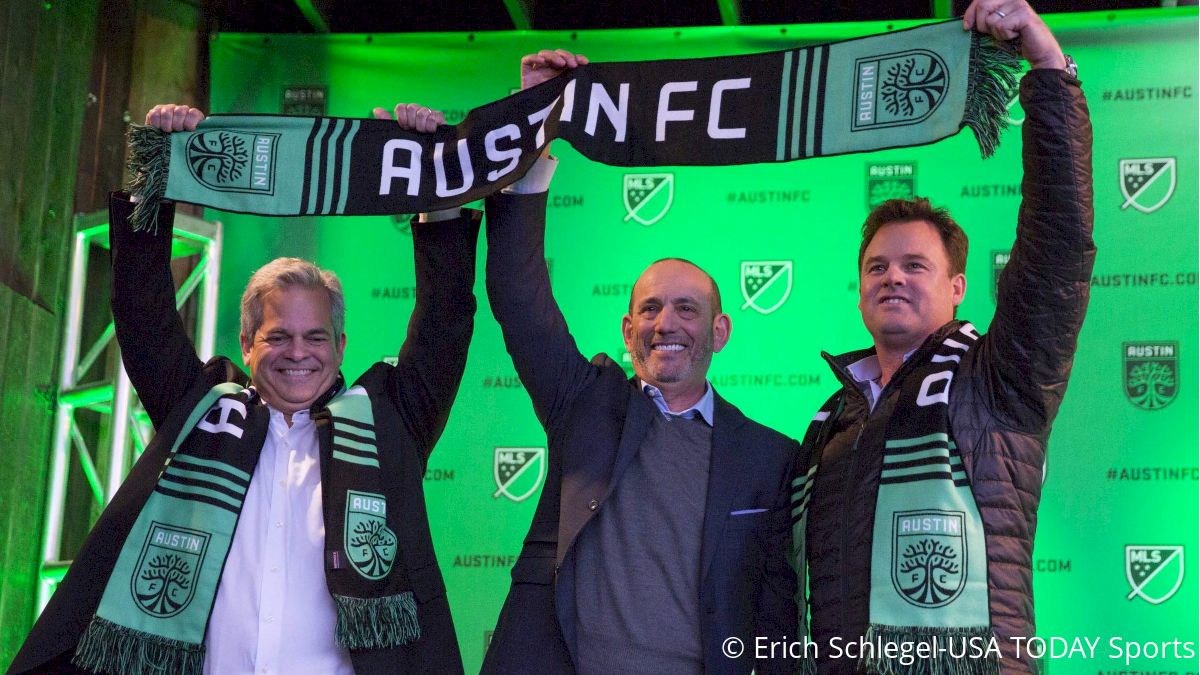From The Ground Up: Austin Looks To Become Latest MLS Success Story In 2021
From The Ground Up: Austin Looks To Become Latest MLS Success Story In 2021
Austin, Texas, is no longer the largest city in the U.S. without a professional sports team. But the road for Austin FC remains long and difficult.

Austin, Texas — a city that prides itself on thinking outside of the box, its vibrant live music scene, and inclusive culture — is no longer the largest U.S. city without a major-league sports team. January 15 has forever been sketched into the history books as “Austin FC Day” thanks to Mayor Steve Adler’s declaration, as Austin FC became Major League Soccer’s 27th franchise on Tuesday.
Those already invested in the beautiful game in Central Texas will be hoping the bright verde of their new team’s crest proves symbolic for the endless energy it will take over the next two years to build a strong foundation. Recent MLS expansion franchises have excelled on this multi-year preparation model, and 2018 newcomers FC Cincinnati appear to have everything in place to join the league with a bang.
To describe the process by which the team was awarded as “complex” would be putting it mildly, and fledgling Austin FC supporters continue to draw the ire of others around the league — even if #SaveTheCrew efforts were fruitful. Nevertheless, Austinites now have the chance to boldly establish themselves as the latest success story when they officially begin play in 2021.
Members of Austin Anthem, the first independent supporters group, have wasted no time in laying the groundwork with that goal in mind. Dan Conrad and Derek Ensign of the Anthem leadership team offered their thoughts on how Austin FC can burst out of the gates while being the perfect fit for the city.
Building Support
Atlanta United quickly became the model for old and new franchises alike through their investment in talent and coaching, state-of-the-art facilities, and for amassing a following that has broken its own MLS attendance records on multiple occasions.
Austin will have its own set of unique circumstances to navigate in the months ahead. Perhaps the most daunting challenge will be to remain true to the values of inclusivity that residents believe characterize the city.
Conrad echoed this sentiment: “This is an opportunity to bring people together whether that is geographically, racially, sexual identity, politically, young, old, families, etc., so we need to be aware of holding different types of events throughout the city and not just in bars around the future stadium site.”
Demonstrating why Austin FC can be a “team for all of Austin” was a key factor throughout town hall meetings and in the final stadium deal. Bringing every corner of the city to the table will be pivotal moving forward.
Incorporating Local Culture
An early priority for supporters of the green and black will be to pull in new participants while also distinguishing themselves from groups across the league. Conrad and Ensign spoke in the same vein in saying that incorporating elements special to Austin’s culture — particularly its food, beer, music, and tech — will be pivotal in building a supporters’ culture from the ground up.
According to Conrad, the tumultuous 18-month process of securing the stadium deal and the team’s entry into Major League Soccer has additional benefits that can be integrated into the growth process. Many proponents of bringing professional soccer to Austin were heavily involved in the political process, and in the months since many members have increased their activity in politics and initiatives throughout the community when they may not have otherwise.
Soccer Stakes Its Claim In The Texas Capital
“Austinites enjoy being weird and unique. I think it is very fitting that we will be the only city in the country with an MLS team as our only major professional sports team,” Ensign said.
Austin’s dramatic growth in recent years is no secret, and the population is expected to surpass one million in just one year’s time. Much to the delight of soccer fans, the world’s game will provide the first taste of major-league sports in a market long dominated by University of Texas athletics — football, in particular. On a professional level, residents have simply had the option of backing nearby teams in Dallas, Houston, and San Antonio.
“MLS viewership is heavily Latin and heavily millennial,” Ensign points out, which certainly bodes well for a city with both a 35 percent Hispanic population (2010 census) and ever-increasing young professional demographic.
Like many others who have argued that soccer is the ideal fit for Austin, Conrad believes the game functions like no other in bringing together people from disparate backgrounds, perfect for the state capital.
“Austin is such an eclectic, transplant city with people from all over the world and nothing to really be a unifying force and that is what soccer can be. Soccer is such an inclusive sport, with players from all over the world for people to identify with and our hope is that Austin FC will continue to bring people together.”
Thank you @AustinFC. I heard you and had a blast. Now...you’ve been given the gift of time, but that 2-year ramp will go by quickly. The knives will be out for you, but you knew that would happen. You better bring it, on and off the field in 2021. Party is over, now get to work. pic.twitter.com/6jqngsiELo
— Alexi Lalas (@AlexiLalas) January 16, 2019
The excitement is still palpable in the “Live Music Capital of the World” following Tuesday’s historic announcement, but, as U.S. Soccer legend and event guest Alexi Lalas echoed on Twitter, now the real work begins in unifying a city around its new club.
Wesley is a graduate of the University of Alabama (BA) and the University of Illinois-Urbana Champaign (MA). He currently works in youth soccer in Austin, Texas, and can be found on Twitter.